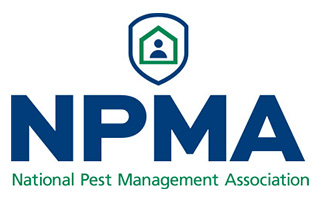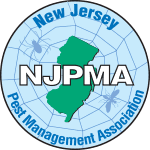ANT CONTROL

Ant control is a very important part of you want to keep your home pest-free year-round. These tiny insects are one of the most common pests in New Jersey; they can invade homes and surface unexpectedly. Although there are several DIY products that you can buy in stores and online, nothing guarantees your satisfaction like professional pest control.
Not sure if you have ants at home? Or maybe you want to learn more about how ant control works. Check out the following ant information to clarify some questions you may have.
Library Shortcuts
- What type of ants do I have?
- How to identify termites or flying ants?
- Can ants damage my home?
- Can ants get in my home during the cold months?
- Are ants harmful?
- Why do I have ants in my kitchen?
- Tips to prevent ants
- Should I use ant repellent or bait?
- Can I get rid of flying ants myself?
What type of ants do I have?
There are several different species of ants that are commonly found throughout the state of New Jersey. Even though most of the ant species are considered nuisance ants, there are species that can actually cause structural damage to your home.
It is important to correctly identify what type of ant is invading your home, in order to better understand the treatment options for that species.
If you are seeing black ants larger than ¼ inch, you probably have a carpenter ant problem. Click here for more information about carpenter ants.
How to identify termites or flying ants?
Both termites and flying ants live in large colonies, so as to spring approaches, they both send out “swarms” of winged reproductive males and females to fly and build new colonies. However, sometimes their “swarms” end up inside of your home. There are four key differences between flying ants and termites that could help you identify them. Flying Ants have a pinched waist and elbowed antennae, which often has them being mistaken for termites. They also have two sets of wings, one set is larger than the second. Termites, however, have a straight antenna and their wing sets are of equal length. They also have more of a tubular, thick waist. Another major difference is that termites lose their wings readily, shedding them onto the ground, whereas the wings on ants typically remain attached to the insect’s body.

Can ants damage my home?
Of all the ants that are native to our area, only carpenter ants and acrobat ants can cause structural damage to your home. Of the two, carpenter ants are more serious than acrobat ants because they will destroy sound wood in addition to wood that has been weakened by moisture damage. Acrobat ants tend to cause less damage and are usually associated in areas of the structure where moisture is a problem.
Ants are constantly looking for food, if you see them around your home they can be on the survey for new feeding sources. If they don’t find any they can continue with their survey somewhere else and come back occasionally to check again. If they do find any food source they can infest your property.
Can ants get in my home during the cold months?
Generally, carpenter ants are most active at night while they search for food. During the warm months, they feed on other insects or substances obtained from other insects, such as a sugary secretion known as “honeydew,” produced from aphids. However, during the colder months, the ants remain largely dormant and only become active when temperatures become warm or if their colony is located near a heat source, such as a heating duct in the wall.
Are ants harmful?
The biggest concern with ant infestations within your home is the potential for disease. Ants are constantly moving back and forth, indoors and back out, picking up germs along the way; which means that bacteria living on the ground or in your pipes can surface and spread if ants cross your food. Sugar ants are the most likely to cause infection because of their specific attraction to sugary and greasy foods.
Pharaoh ants, another type of sugar ants, are known to be carriers of Staphylococcus, a bacterial infection that humans can contract. There is also a chance that you can contract salmonella from eating food that ants have come in contact with. By crawling across your food, they can spread salmonella for you to ingest. The best way to avoid these situations is to engage in proactive and prevention measures and professional ant control services.
Why do I have ants in my kitchen?
Your kitchen is the most common place to find nuisance ants. They are attracted to food sources such and water to keep the colony alive and growing. Inevitably, your family will end up dropping small crumbs after snacks and meals without knowing it. Unless you are hyper-vigilant about cleaning and sweeping your floors, crumbs are bound to exist. Even if you use extreme care, keeping your kitchen floor clean, ants are also attracted to other food sources that you may not realize.
Pet food bowls are a perfect way for small ants and other pests to thrive in your kitchen. Throw away uneaten pet food or lift it away from the floor into a sealed container at the end of each day to avoid this scenario. Ants and other pests can easily find pet food in poorly sealed containers such as the large paper bags that they come in. Frequently dumping water from their bowl can deter ants even further. Be sure to also clean the area around the bowls since dogs and cats aren’t always the tidiest when it comes to eating and drinking, and they create crumbs and water droplets that attract ants.

Tips to prevent ants
Nobody appreciates ants crawling along with their countertops while having guests over for dinner. With the internet busting at its seams with various DIY tactics and tricks for anything and everything, what does it take to make ant DIY remedies work? Bait placement is critical when trying to remove ants from a dwelling. Where you place the bait can determine if it will be a success or not. Just like spraying repellents, bait placement along ant trails (that include lines and edges) would be the first place to start. Follow the edges along baseboards and place THE bait in a corner along that baseboard. If you find ants crawling along the edges of your backsplash, place bait near those edges. If you already know the ant trail, start there. For instance, if you know you’re seeing ants in your kitchen near your dishwasher, perhaps start by spraying along the baseboards leading to that location. If there are any cracks or crevices, be sure to include those because they might be entry points for the ant; sealing entries can also help you get rid of them or prevent an infestation.
Should I use ant repellent or bait?
The definition of repellent is as follows: “a substance that deters insects or other pests from approaching or settling.” Basically, an ant repellent does as its title implies: it repels ants. This means creating a barrier that the ants no longer want to cross and instead search for somewhere else to go.
Some repellents can work and be very helpful, however, in the end, you’ll just be redirecting the ants, and they may find another entryway into your home. Repellents don’t kill the colony, and if that’s what you want to do, then you may want to use bait instead.
If you’re looking to deplete the entire ant colony, you may want to use a baiting solution. The bait will attract the ants and they will ingest it to bring it back to the colony, where the rest of the ants will also eat the bait and eventually die off.

Can I get rid of flying ants myself?
Controlling the flying ant population at your home can be challenging to do on your own. Once a swarm begins, flying ants will emerge in as many as hundreds of thousands.
Fortunately, this typically only lasts for a few hours to a few days and then ceases. The goal of flying ants is to use their wings to leave the colony and reproduce. Swarming does not happen frequently, so pest control companies will focus on preventing them from infesting your property rather than reactive services. You can vacuum up flying ants and dispose of them as they are visible.
Flying ants are likely to enter your home through cracks and crevices around your home including open windows and around your basement. Your best defense against these and any other type of ant is to seal up those areas and keep your kitchen counter and floors free of crumbs. Without an entry point or a food source, ants will find your home less appealing.
Want a Free Estimate?
Need to Schedule Service?
Have a Questions?
Ant Control Programs
WHAT WILL WE DO?
Our ant control process typically consists of the following stages:
- Confirm or discard the existence of mice in your home through an inspection.
- Identify the factors that may be causing and contributing to the infestation.
- Offer pest control programs to get the problem under control.
- Treat the existing ant population and prevent future infestations.
Schedule our One-Time Ant Control service online to get rid of tiny black ants with same-day or next-day service.
What our clients are saying
Our Partners and Awards
Service area
New Jersey:
Ocean County
Essex County
Passaic County
Morris County
Hudson County
Bergen County









